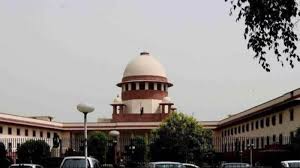‘Disturbing’: SC asks YouTubers who joked about disabled to attend next hearing too

India’s Supreme Court has summoned a group of YouTubers, including comedian Samay Raina, for making jokes about people with disabilities in a YouTube show titled India’s Got Latent. The Court found the remarks “disturbing” and emphasized the need to respect the dignity of individuals with disabilities. This case has ignited a serious debate on free speech versus responsible content creation in the digital era.
What Sparked the Controversy?
The incident began when the SMA Cure Foundation filed a petition. They accused the creators of mocking individuals with disabilities like Spinal Muscular Atrophy (SMA) and blindness. The jokes, shared on YouTube, were part of a show that aired publicly and quickly drew backlash.
Following the petition, the Supreme Court took the matter seriously. The Court stated that while freedom of speech is protected under Article 19 of the Constitution, it cannot override the right to life and dignity guaranteed by Article 21.
A Firm Stand from the Judiciary
On July 15, 2025, Samay Raina and four other influencers appeared before the Court. They were instructed to submit their written responses within two weeks. Justice-led warnings made it clear: skipping future hearings could lead to stricter actions.
One of the influencers, Sonali Thakkar, received permission to attend the next session virtually due to health reasons. This exception, however, didn’t dilute the seriousness of the Court’s tone. The judges reiterated that public personalities must be held accountable for speech that causes harm.
The Broader Legal and Ethical Picture
This situation raises several legal and ethical questions:
- Freedom of expression has limits. It must not be used to demean or humiliate.
- Content mocking disabilities can qualify as hate speech, violating several Indian laws, including the Rights of Persons with Disabilities Act.
- Influencers with wide reach have a duty to be more sensitive and inclusive in their content.
The Court’s strong response highlights a shift in how India views harmful content on digital platforms. It sends a clear message that content creators cannot hide behind “comedy” or “free expression” when it comes to degrading vulnerable communities.
Content Creators Must Lead by Example
Digital influencers today enjoy vast popularity and influence. Their voices shape opinions, trends, and even public behavior. With this influence comes responsibility.
Jokes that target physical or mental conditions reinforce negative stereotypes. Instead of entertaining, they can damage self-esteem and promote exclusion. Creators should aim to educate and uplift, not ridicule.
There’s no shortage of topics to joke about—punching down on vulnerable people shouldn’t be one of them. By focusing on inclusive and thoughtful humor, creators can entertain while maintaining respect.
Social Response and Public Backlash
The public’s reaction to the controversy has been mixed. Many applauded the Court’s firm stance. They argued that mocking disabilities has no place in modern, empathetic societies.
Others worried about overregulation and the possible suppression of artistic freedom. However, most agree that dignity should never be sacrificed for a few laughs.
This case also revealed a major gap in content regulation. While traditional media faces tight controls, digital platforms remain largely unmonitored. As a result, many harmful videos spread unchecked before being reported or removed.
Time for Guidelines and Better Oversight
Recognizing this, the Supreme Court has asked the Attorney General for guidance on drafting social media regulations. These could include clear definitions of hate speech, rules about sensitive content, and penalties for violations.
Such rules would not only help protect communities but also offer creators a clearer understanding of the boundaries they must respect. Ideally, regulations would strike a balance—allowing creators to express themselves while ensuring their content doesn’t cause harm.
Digital platforms like YouTube also have a role to play. They must update community guidelines, improve moderation tools, and offer sensitivity training to content creators. If platforms act proactively, many such issues could be avoided before reaching the courts.
A Step Toward Inclusive Digital Culture
This legal development is more than just a warning to a few YouTubers—it’s a defining moment. The Court has set a precedent that speech online is not above scrutiny, especially when it targets vulnerable groups.
As India’s digital space continues to grow, so does the need for empathy and accountability. A more respectful internet begins with awareness, education, and consequences for those who misuse their platforms.
Creators must realize that every word carries weight. Their jokes, opinions, and messages ripple through millions of screens. When used right, this influence can spread awareness, foster understanding, and build a better, kinder society.






